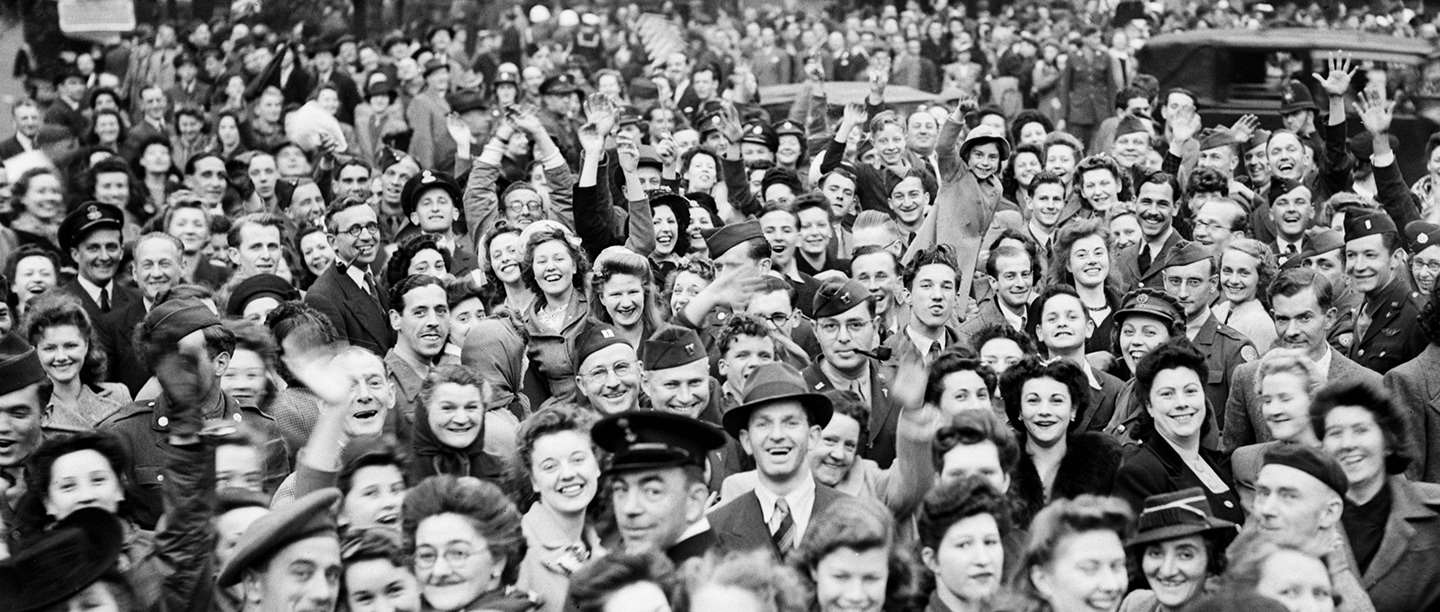
We are unable to leave our homes. Our public services are creaking under the weight of a pandemic. There is no notion of what comes next, and we are all concerned about the wellbeing of our loved ones. Why is it so important for us to spend time thinking about events that took place long before most of us were even born?
Over 450,000 British men, women and children died in World War Two. The majority of them in the European theatre or as a result of bombing raids launched from the continent. Without this unfathomable sacrifice, the surrender of the most tyrannical regime the world has ever seen would not have taken place. Time does not erode the significance of this event, and in celebrating and reflecting, we preserve the actions of those before us. As the number of people with living memory of the events slowly slip away, the importance of commemoration grows. Not only for their sake, but for the sake of future generations who can draw vital lessons from actions that took place 75 years ago.
Lessons of resilience and stories of recovery have the ability to instil in us the hardy mentality that saw this country through the darkest period in its history. Many of the hard-fought freedoms secured by the actions of those during World War Two are the ones we find ourselves without today. Most are unable to leave their homes, loved ones are at risk of harm, and spending time with those close to us is impossible for many. In taking stock of the actions performed by those during World War Two, we will find the strength to deal with the present. The continuation of celebrations act as a reminder. This country has overcome hardship before, and we can do it again.
Reflecting on the events that unfolded in the wake of VE Day highlight that when backed into a corner and pushed to our limits, Britain is capable of transforming society for the better. The 1945 Labour landslide secured by Clement Attlee brought with it a of tide of radical social policy that has indisputably enriched our society and changed the political landscape indefinitely. Our much-cherished National Health Service, cradle to grave welfare, modern day workers’ rights and efforts to tackle wealth disparity are all firm foundations helping to fight the crisis today, borne out of the crisis 75 years ago. Spending some time thinking about this reminds the nation that we are capable not just of overcoming hardship but transforming society for the better.
The lessons learnt by celebrating VE Day go beyond inspiration and commemoration. They also help us learn the value of working together. On 8 May, standing before an ecstatic sea of people stretching from Whitehall to Buckingham Palace, Prime Minister Winston Churchill leant from the Ministry of Health balcony and declared “This is not victory of a party or of any class. It’s a victory of the great British nation as a whole”. Why is this important? Because it shows that in times of crisis, we must come together to fight a common enemy.
There is a great deal more that unites us in this country than divides us. Understanding the intrinsic nature of putting differences aside will help us now in the battle against this pandemic. Bombs in the Blitz did not discriminate, neither does Covid-19. A united front helped defeat the former, it falls on our shoulders to make sure it defeats the latter too.
Between 1939 and 1945, 383,700 British armed forces personnel laid down their lives in the fight against tyranny. 75 years later, in the midst of a very different crisis, they are still delivering for Britain. From supplying PPE to frontline staff to supporting local authorities and the NHS, three quarters of a century on our military personnel are standing up to be counted in our time of need. We owe it to all generations of service people to celebrate their actions and remind them that we recognise all they have done, and all they are doing.
So, as we hit the 75th anniversary of VE Day, celebrations are more important than ever. Lessons of resilience and fortitude can be learnt from the adversity faced by past generations. Radical social change and transformation prompted by the crisis then can help us forge new paths of compassion now. Stories of cooperation and alliance show us the benefit of putting differences aside. Covid-19 has not lessened the importance of our VE Day commemorations. It has enhanced it. The bunting must go up. The photo albums must be opened, and the stories must be passed on.
Now more than ever, as a nation, we must come together and celebrate safely in whatever way we can.
Stephen Morgan MP writing for Politics Home marking the 75th anniversary of VE Day

